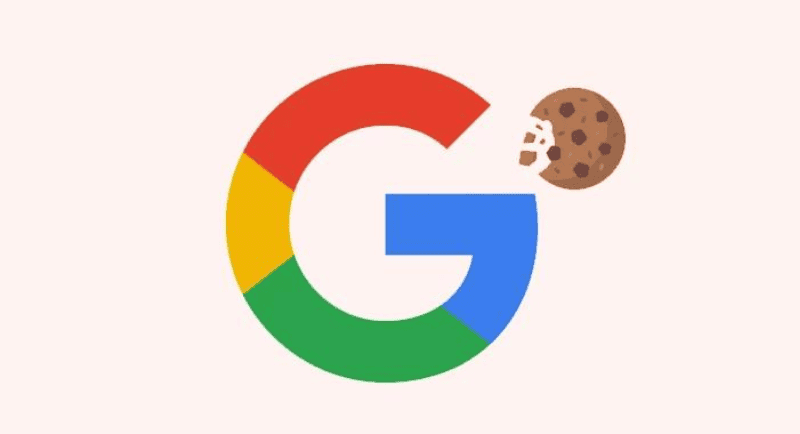The industry has called Google’s decision not to deprecate third-party cookies in its Chrome Browser an “early Christmas present for Apple” and proof that Google cannot be relied on. Yesterday, Google announced its backflip, after delaying deprecation three times, most recently in April.
The tech giant’s original promise was that third-party cookies would vanish from Chrome by January 2020, a deadline that was slowly extended until the end of 2024, but the UK Competition and Markets Authority (CMA) raised 39 “concerns” to be addressed before the plan could proceed back in January.
In a blog post on Tuesday, Anthony Chavez, VP of Privacy Sandbox, said Google will now be proposing an updated approach that elevates user choice.
“We would introduce a new experience in Chrome that lets people make an informed choice that applies across their web browsing, and they’d be able to adjust that choice at any time. We’re discussing this new path with regulators, and will engage with the industry as we roll this out,” he added.

David Gaskill, founder and director of ZRO FOX, says the move by Google to keep third-party cookies does more harm than good in slowing the evolution of digital marketing, noting that “smart brands and businesses will continue to focus on sustainable, scalable data and technology solutions to deliver certainty of marketing investment.”
“My advice? Carpe diem. Seize the day and take control of your own destiny,” he said.
“This move by Google only reinforces that we can no longer rely on legacy big tech to innovate and drive the digital marketing agenda. Real growth and success will come from those who are innovating, evolving and challenging the status quo. If you’re not one of them, then it’s time to work with someone who is.”
Google’s announcement comes ahead of impending Privacy Act reforms, with legislation expected to be tabled in August. While it’s not clear how broad its scope will be, Attorney-General Mark Dreyfus confirmed in May that the current laws are “woefully outdated and unfit for the digital age.”
Niall Hogan, general manager JAPAC at GumGum, acknowledged that the reforms are just days away, and Google’s decision signals a “step back from advancing privacy.”
“Stakeholders across the spectrum—regulators, consumers, and brands—have been pushing for more privacy-conscious solutions. Google’s decision is a missed opportunity to lead in privacy innovation,” he said.
Rachel Page, national digital sales director at Seven West Media, said Australia still faces one of “the strictest privacy overhauls around the globe.”
“Publishers, agencies and technology vendors who have already invested heavily in shifting their reliance away from third-party cookies still stand to benefit,” she told Mediaweek.
“Google’s announcement shouldn’t be a reason to undo that great work. The greatest outcomes will always be achieved by partnering with organisations prioritising user privacy while offering innovative, high-value advertising solutions with engaged audiences.”
However, Analytic Partners AU MD, Paul Sinkinson, proposed that third-party cookies “actually never worked the way many people thought.”
“You could have been doing better,” he said.
“Consistent testing has shown that relying on cookie-based measurement for planning your media leaves a load of money on the table – and you could already be missing more than half the clicks and views anyway due to issues with third-party data.
“It’s been very encouraging to see so many alternative solutions start to emerge, many of which were providing more certainty for marketers, and our hope is that those continue to build and gain traction as cookies continue to fade out, albeit more slowly.”
James McDonald, co-founder and director of Audience Group added that cookies “only ever offered a false promise of precision.”
“Cookies and third-party data are only 51% accurate, irritate consumers and undermine ad effectiveness. Use of cookies has been rubbish in terms of effective targeting, anyway.
“Cookies and third-party data may remain part of the mix but the mix must evolve. We recommend increasing your use of cookieless targeting solutions and first-party data programs that prioritise privacy to build consumer trust and drive results.”
According to James Bayes, The Trade Desk ANZ VP, the advertising industry has “moved on” and “realised the digital world extends beyond Chrome.”
“Today, we are engaged on devices, screens and apps across some of Australia’s fastest-growing cookieless channels including streaming, BVOD and digital audio.
“This has paved the way for far more superior identity solutions that aren’t controlled by Big Tech, like Unified ID 2.0, which represents a significant upgrade to the internet.
“Whilst Google appears to have finally acknowledged that the best option for them is to give consumers choice, the question remains – will Google really give consumers choice? Or will they make the decision for consumers and then bury consumers’ access to change it?”
Paul Blackburn, director of commercial data and e-commerce at News Corp told Mediaweek that it’s still “early days” and the company is keen to see more information on what Google’s decision to provide user settings actually means.
“For us, it doesn’t change anything too much,” he said.
“The message we spread at our D_Coded event earlier this year was that there are great new technologies that are privacy compliant and cookieless in nature already, providing a higher fidelity signal.
“The case studies we highlighted showed four times the return on ad spend than one might get versus third-party cookies.
“The thing that scares me the most however is I hope marketers aren’t seeing this as a reason to slow down in their approach to looking at privacy first cookieless solutions, because there’s marketing effectiveness gain that they are going to lose if they don’t lean into this stuff.”
The strategies that arose amidst the presumption that third-party cookies were going to disappear included the shift toward first-party data, privacy-respecting collection, and personalised experiences. Antonio Panuccio, head of data and technology at Enigma, said these are not solely linked to needing to ensure advertising return-on-investment. He said he hopes Google will still continue to push ahead with the Privacy Sandbox.
“It’s a recognition, particularly in Australia as of late, of consumers’ heightened awareness and desire for data privacy and security,” he said.
“We’ll see the prevailing commentary in the market calling for organisations to continue to invest in first-party data collection and investment into privacy-respecting strategies, but what I hope to see is Google’s continued investment, transparency, and timely deployment of the Privacy Sandbox initiative rather than letting the project slip into the ether which can be tempting with their partial reversal of course.”
Hadrien Huneau, national head of performance and programmatic at Atomic 212˚, wasn’t surprised by the decision.
“The challenge of developing a new solution to effectively replace a technology that has powered tracking and measurement for the entire Web for over 30 years was very ambitious,” Huneau said.
“Outside regulatory concerns, advertising effectiveness, and campaign performance remain critical for advertisers and publishers while the entire industry works toward better privacy controls. We will continue to guide and support our clients in navigating these current and future changes.”
Google’s shift to a user choice mechanism for cookies in Chrome won’t mean the end of deprecation efforts but it “may well accelerate the decline in cookie availability,” Chris Brinkworth, managing partner at Civic Data, said.
“Advertisers should continue preparing for a ‘cookieless’ future while also adapting to a more complex, mixed environment where some users have cookies enabled and others don’t,” he said.
“It is clear that Google cannot be relied upon when it comes to building plans around their statements. Smart advertisers should not just continue, but also increase their exploration and testing of multiple identity solutions and targeting methods, to ensure they’re not overly reliant on any single approach in this evolving landscape.”
Founder and digital media strategist at Prophesy Digital, Mehrak Saheb, quipped that Google’s decision is “an early Christmas present for Apple.”
“[Apple] is determined to own ‘privacy’ as their brand pillar but it’s a win for advertisers and publishers alike,” she said.
“If we’ve learned anything from the iPhone experience, it’s that given a choice, the majority of consumers will opt not to be tracked. We need to continue exploring better ways to target and track without relying on cookies.”

Apple’s Privacy Billboards
LiveRamp’s APAC MD Melanie Hoptman, said the news means marketers can keep moving towards signals with better connectivity, and Mediahub’s Gerry Bowness argued that cookie-based targeting will still be part of marketers’ toolboxes.
“The general public is more focused on consumer privacy than ever, so as marketers we need to ensure this is taken seriously whilst also designing the most effective campaigns for clients,” the agency’s head of digital said.
Natalie Hatch, strategic partnerships lead at KINESSO, noted that the industry shouldn’t stop prioritising privacy, because the impending legislation updates are “not on a Google timeline.”
“For clients, the continued investment into the development of a strong first-party data asset is still necessary, it is still and will continue to be a competitive advantage and a way to collaborate with publishers, adjacent clients and agencies in the future,” she said.
“From an IPG perspective, we will continue to work with Google to understand how this recent announcement impacts Privacy Sandbox and with other DSP, SSP and Publisher partners to work to continue to move ahead in leading a positive change for our industry.”
–
Top image: Rachel Page, Paul Blackburn, Paul Sinkinson, Gerry Bowness, Antonio Panuccio, Natalie Hatch

